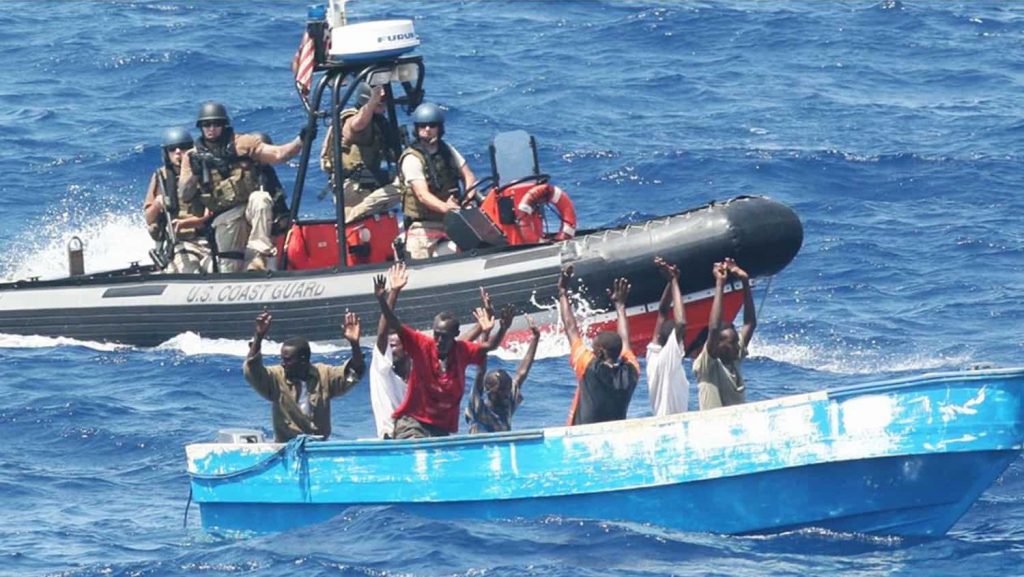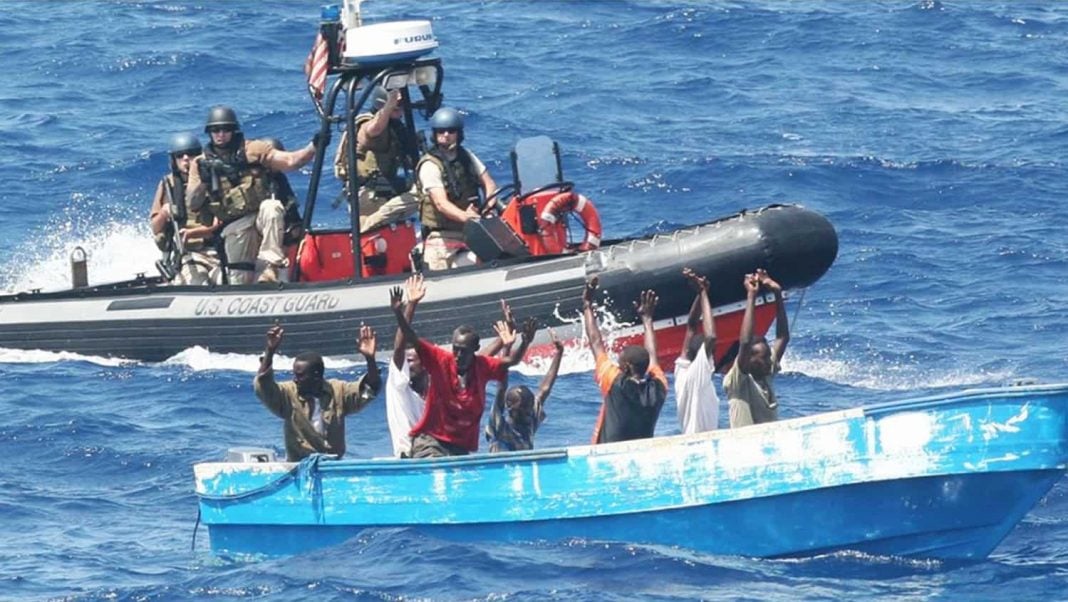
Key Judgements
- Piracy activities in the Gulf of Guinea are highly linked with land security issues. The attention given by regional governments to maritime threats is still very low.
- The countries in the area affected by piracy suffer great economic losses.
- The governments’ neglect regarding coast guarding encourages other countries like China to conduct illegal fishing in the gulf.
Reconstructed Scenario
For over ten years, piracy has represented a high concern for security along the African coastline. The most reported case is that of Somali pirates. However, countries like Nigeria and Cameroon are also highly impacted by the piracy threat in their territorial and nearby waters. In the last three months, national coastguards and polices reported numerous vandalizing attacks, robberies and kidnappings conducted on small vessels.
Piracy in the Gulf of Guinea is also used for transnational organized crime operations and mainly as an opioid smuggling network. In 2018, the amount of tramadol seized in the ports of Nigeria reached 150 tons. The region is accounting for three quarters of all tramadol seized globally. Wildlife and forestry products are also being trafficked. These include ivory, pangolin scales and rosewood. Piracy in the area represents a consequence of inefficient governance, weak security forces, illegal activities on land, as well as poverty. While most of the administrations are concerned with the more urgent threat of terrorism and radicalization, maritime threats do not receive much attention.
Economic Impact
In the last few years, Nigeria-based criminals have become notorious across the continent. Along the coast of Benin, Togo and Cameroon, Nigerian pirates continue to attack seafarers and their vessels. Given that the world’s primary maritime routes encircle Africa, frequent attacks could put in peril the economy of countries surrounding the Gulf of Guinea. Concerned for the security of their shipments, other countries and companies might avoid trade routes crossing the gulf. In these countries the ports represent a great source of revenue, thus illegal activity and low security causes decreases in trading profits. In ports such as Cotonou, collected profits represent over 40% from Benin’s annual revenues. According to the African Union, the Gulf of Guinea experiences one pirate attack weekly, causing a 4.1 percent annual decrease in shipments.
The Gulf’s numerous resources attract illegal vessels coming from China, Europe, the Philippines, Russia, South Korea, and Taiwan who take advantage of the weak security forces patrolling the region. Although, in the last few months, most of the reported attacks concerned fishing boats, oil and gas tankers are the most targeted vessels. The region produces more than 5 million barrels of sweet crude petroleum per day, which means that an increase in the number of attacks could endanger the export of oil to larger consumers such as Europe and the US.
Decreasing attacks
The piracy threat in the Gulf of Guinea is not expected to cease in the next few years, due to the complexity of social and political contexts. However, the number of attacks and casualties has decreased significantly in 2019. In Nigeria, President Buhari has adopted a series of counter measures aimed at facilitating safe routes for the regional sailors. In the last few months, the security level in the area has increased, with national navies using foreign aid to perfect their capabilities. According to IMB Piracy Reporting Centre, “78 incidents of piracy and armed robbery against ships were recorded in the first half of 2019, compared to 107 incidents for the same period of 2018.” Yet recent attacks reported close to the Nigerian coastline as well as those conducted near the shores of Benin, Gambia and Equatorial Guinea show that pirates are still capable of pursuing their own agenda, despite increased security measures adopted by regional governments.
Land security issues
Regional maritime security and land stability should be considered intertwined. In the Gulf of Guinea, activities such as piracy, narcotics trafficking, arms smuggling, and vandalism are deteriorating the regional economy by diminishing foreign investments. Illegal activities at sea are sustained by persistent insurgency movements whose funds come from organized crime and small-arms trafficking, but also by a high rate of unemployment.
Regional cooperation
For improving the standards of its own maritime security, the government of Benin has recently announced adopting new measures. However, if these measures are only going to be implemented in one or two countries, they will not become efficient. For the prosperity of the region, an emphasized regional cooperation is highly needed. A few bodies aimed at facilitating cooperation have already been established and one of them is the Gulf of Guinea Commission which has the largest mandate for dealing with maritime issues. It was established in 2001 as a permanent framework for collective action but it does not include countries like Togo and Benin which are also facing the piracy threat.
Image: LCDR Tyson Weinert / Creative Commons

